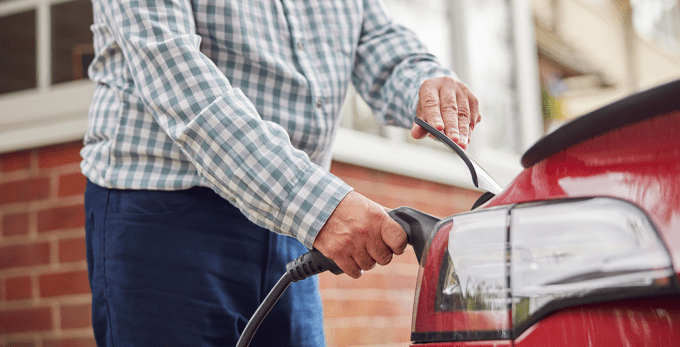New research by The Green Insurer reveals that over a third of petrol and diesel car owners plan to avoid electric vehicles (EVs) when buying their next car. Despite the push for cleaner, greener options, 35% of those surveyed say they’re committed to sticking with fossil-fuel vehicles. This insight raises some important questions about the effectiveness of the UK’s EV strategy and whether it’s doing enough to inspire drivers to make the switch.
The study highlights that 64% of motorists believe the government should be doing more to make EV ownership more attractive. This view is becoming increasingly prevalent as the 2030 deadline for the UK’s ban on new petrol and diesel cars approaches. With the need for mass adoption of EVs growing urgent, incentives like subsidies or tax breaks may be the key to overcoming some drivers’ hesitation.
The Motivations—and Hesitations—Behind EV Adoption
While 31% of petrol and diesel owners surveyed are leaning toward purchasing an electric or hybrid vehicle next, the rest remain uncommitted. The study found that 34% of traditional car owners feel indifferent about the type of fuel their next car will use. This indifference points to a larger problem: a lack of compelling information or incentives to convince people to transition to electric. In a landscape where charging infrastructure, upfront costs, and vehicle range are still significant concerns for many, it’s not surprising that a large portion of the market hasn’t fully committed to EVs.
On the other hand, EV owners appear much more enthusiastic about their choice. A strong 85% of electric car owners reported that they would opt for another EV when it’s time to upgrade. Their loyalty, however, isn’t entirely unwavering—32% of current EV owners admitted they’ve had some regrets about their purchase, citing factors such as charging infrastructure limitations, vehicle range, or technology-related issues. While these numbers might sound discouraging, they reveal that once drivers experience the benefits of EVs—smooth, quiet rides, lower operating costs, and environmental benefits—they tend to stick with them despite some inconveniences.
What Can Be Done to Make the Shift to Electric More Appealing?
Government Incentives: The call for government-backed incentives is clear. More than half of the surveyed drivers believe that financial incentives could be the push they need to consider an EV. Increased grants, tax reductions, or subsidies for EV purchases could alleviate some concerns around cost—often one of the most significant hurdles.
Expanded Charging Infrastructure: Range anxiety remains a barrier. Even as charging networks expand, many drivers worry about accessibility and reliability, especially when planning longer trips. Strengthening and publicizing charging networks could help mitigate these concerns and build confidence in EVs.
Enhanced Public Awareness and Education: Many drivers still don’t fully understand the benefits of EVs beyond their environmental impact. Education campaigns that focus on practical advantages—like fuel savings, lower maintenance costs, and available tax breaks—could help bridge this knowledge gap.
Improving EV Technology: The lingering regrets among some EV owners also suggest that there’s room for improvement in EV technology and infrastructure. Faster, more widespread charging options, longer ranges, and over-the-air software updates could make EV ownership more appealing and retain the loyalty of existing EV drivers.
The Road Ahead for EV Adoption
While it’s encouraging to see that a solid third of current petrol and diesel owners are considering a shift to electric, it’s evident that more needs to be done to inspire greater adoption. For EVs to move from the niche market to mainstream, key stakeholders—from the government to manufacturers—must address the concerns of prospective buyers with practical solutions. Increasing public awareness, incentives, and infrastructure are just some of the steps that can ensure a smooth and successful transition to a cleaner, electric future.
If you’re on the fence, it’s worth remembering that many of the perceived challenges around EV ownership—like range and charging speed—are being addressed at an unprecedented pace. As EV technology continues to advance and charging networks expand, the benefits of going electric are likely to become even more evident.
So, whether you’re an EV enthusiast or still skeptical, one thing’s clear: the conversation around electric vehicles isn’t slowing down, and the future is undeniably electric.



